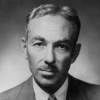E. B. White

E. B. White
Elwyn Brooks "E. B." White was an American writer. He was a contributor to The New Yorker magazine and a co-author of the English language style guide The Elements of Style, which is commonly known as "Strunk & White". He also wrote books for children, including Stuart Little, Charlotte's Web, and The Trumpet of the Swan. Charlotte's Web was voted the top children's novel in a 2012 survey of School Library Journal readers, an accomplishment repeated in earlier surveys...
NationalityAmerican
ProfessionWriter
Date of Birth11 July 1899
CountryUnited States of America
It's easier to work when you know why you're working,
It's funny how the worst of times brings on the best of times,
It shows the complexity of the day -- the frailties, lack of communication and frustration. This is not a happy film; this is not a pretty film; this film describes in real time the deaths that occurred. It shows footage of the Towers and the Pentagon and weaves Flight 93 through it all.
It shows a lot of courage by our offense. With a big crowd in a big game, you'll be behind sometimes. The offense kind of sputtered a little in the second half, but we came through when it counted.
It shows a lot of courage by our offense, ... With a big crowd in a big game, you'll be behind sometimes. The offense kind of sputtered a little in the second half, but we came through when it counted.
It's good to see the players union moving in the right direction. However, it remains to be seen whether this proposal is strong enough for members of Congress.
It's good to see the players union moving in the right direction. But it remains to be seen whether this is good enough for members of Congress,
It's good to see The Golf Channel somehow get into it. By then hopefully it's plugged into cable.
It's great to have rich relatives. I wouldn't have been able to afford any of this if it wasn't for him.
It's our obligation as the committee when we have an athlete who testified under oath, ... We need to determine the timing of the drug test and what was found in his system to understand whether perjury is an issue here.
It's my bias to believe the Fed will act again -- next month, if not next week.
It's unbelievable. Last year it was on the hooter, this year it's with four minutes to go. You have to give credit to the All Blacks, that's probably why they're the best team in the world. They just kept coming at us.
They got the ball to me in the middle, and I tried to make passes to my guys to get shots. We knocked down shots and got ourselves the lead. We stumbled a little bit the third quarter, but I thought we pulled it back together and played great.
They don't have to call anybody for approval; they can flip the switch and go on air. We don't want any time lapse.